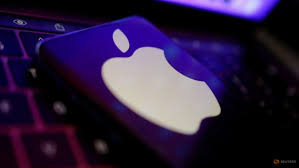Indonesia has turned down a $100 million investment proposal from Apple aimed at lifting a ban on iPhone 16 sales, citing concerns over fairness and compliance with local regulations.
The ban, imposed last month, stems from Apple’s failure to meet Indonesia’s requirement that 40% of phone components be locally sourced. The regulation is part of the government’s push to attract greater investments from major tech companies.
In response, Apple offered to boost its investments in Indonesia by $100 million to secure approval for iPhone 16 sales. However, Industry Minister Agus Gumiwang Kartasasmita said the offer fell short of expectations, especially when compared to Apple’s investments in other countries.

“Currently, Apple still has not invested in production facilities or factories in Indonesia,” Kartasasmita said in a statement on Monday. He urged the company to establish local manufacturing operations to avoid renegotiating investment terms every three years.
Despite the sales ban, Indonesians can still bring iPhone 16 models into the country for personal use, provided they are not sold commercially. The government estimates around 9,000 units of the phone have already entered the market this way.
A similar ban has also been placed on Google Pixel phones for failing to meet the same local content requirements. Approximately 22,000 Pixel phones have entered Indonesia this year despite the restrictions.


